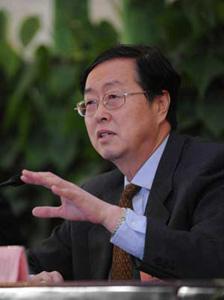China
Top bank official: stronger yuan not major inflation control means
Source: Xinhua | 03-06-2008 11:14
Special Report: 2008 NPC & CPPCC sessionsBEIJING, March 5 (Xinhua) -- A faster appreciation of Chinese yuan may help control inflation, but cannot become the major means of curbing inflation, said China's top bank official.
 |
| Zhou Xiaochuan, governor of the People's Bank of China, answers a question from journalists during a press conference on economic and social development and macroeconomic regulation held by the First Session of the 11th National People's Congress (NPC) at the Great Hall of the People in Beijing, capital of China, March 6, 2008. (Xinhua Photo) |
Inflation control still rely mainly on the government's polices, including tight monetary policies, said Zhou Xiaochuan, head of the People's Bank of China (PBOC), at a press conference held during the annual session of China's top legislature, the National People's Congress (NPC).
China has made its currency regime more flexible by letting the yuan appreciate steadily. The currency has appreciated about 12 percent since July 2005, when the government started to de-peg theyuan from the greenback.
On Thursday, the yuan rose 4 basis points to hit a central parity rate of 7.1168 yuan per U.S. dollar.
A faster appreciation of the yuan has been suggested by some economists to help cut the trade surplus, which is believed to be the chief reason of the current excessive liquidity that drives up prices. A stronger yuan would make exports more expensive in foreign currency terms.
"It's helpful," said Zhou, denying that inflation is the major consideration in accelerating the yuan appreciation.
The exchange rate was decided more by market forces, or the suppliers and demanders' predictions of the trend of a currency's value, Zhou explained.
Editor:Zhang Pengfei



